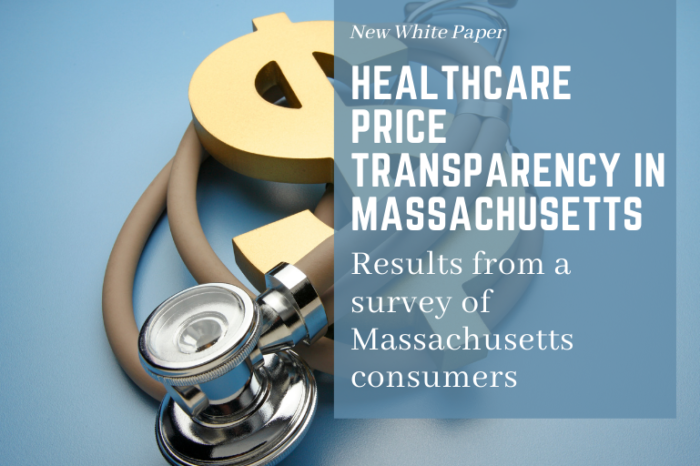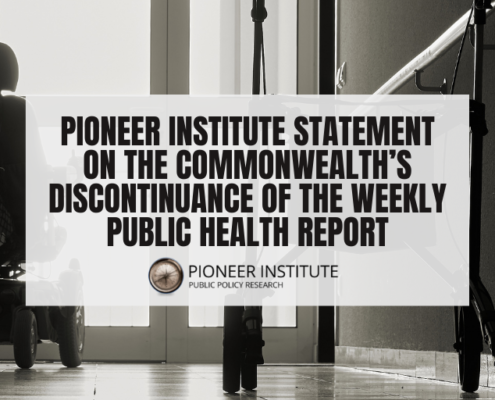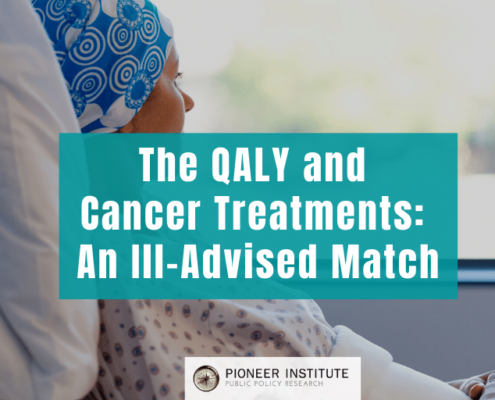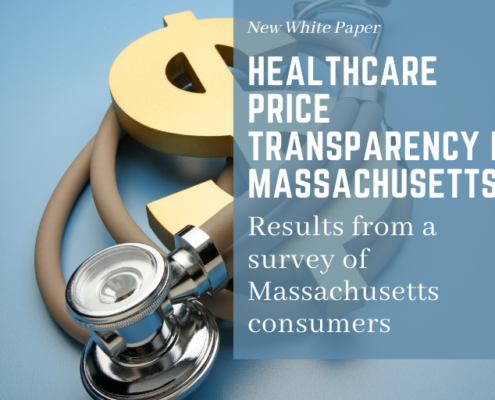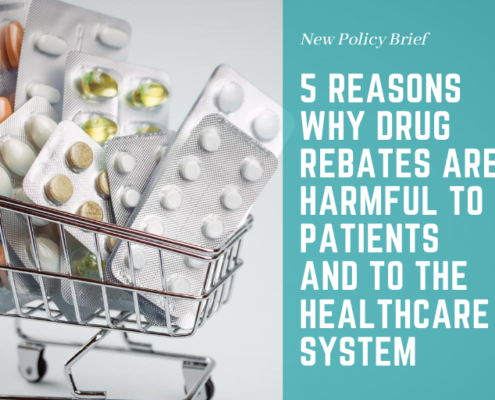Survey: Consumers Want Healthcare Price Information, But Few Realize It’s Available
State law, online tools are examples of the progress, but there’s more to do
BOSTON – Great strides have been made to increase healthcare price transparency through online cost estimator tools and a state law that requires providers to give out price information. Yet despite the eagerness of consumers to access prices and out-of-pocket costs, many are unaware that such information is available and don’t know how to access it, according to survey results published by Pioneer Institute.
“Consumers say they want price information, but only a small portion of people know they have access to it,” said Barbara Anthony, who authored “Healthcare Price Transparency in Massachusetts: Results from a survey of Massachusetts consumers regarding healthcare price transparency,” with Seher Chowdhury. “The gap between aspirations and the ability to actually obtain price information must be filled.”
DAPA Research at Suffolk University surveyed 500 adults in Massachusetts who obtain their insurance through employers or on the open market between June 15th and 23rd of 2019. Most results are at a 96 percent confidence level. Here is a summary of the findings:
Satisfaction with insurers and deductibles
Three quarters of Massachusetts consumers with private commercial insurance said they were satisfied or very satisfied with their coverage. Yet 64 percent of those expressing satisfaction with their coverage still worry about healthcare costs.
Seventy-six percent of respondents either have no deductible of a deductible of $3,000 or less. Eleven percent have deductibles greater than $3,000, and 12 percent don’t know their deductible.
Twenty-three percent said they had chosen not to obtain necessary healthcare in the last three years due to cost. It appears, however, that deductible size may not be the primary reason for deferring care, since 80 percent of those who did so had deductibles of less than $3,000. Deferring necessary care can lead to poorer and more expensive health outcomes.
Finding healthcare prices
Only one in five Massachusetts consumers have tried to find price information before obtaining a healthcare service. It’s not that they aren’t interested; rather, it appears that consumers don’t know they have a right to such information under state law and they don’t know how to access it.
Seven in ten consumers said they would like to know prices, but about the same percentage didn’t know insurance carriers have price estimator tools they could use to find them.
A majority said they had never thought of trying to obtain healthcare price information.
Respondents said the sources they would trust the most for price information were, in order, their insurance company, their doctor, and the Commonwealth of Massachusetts.
Incentives to choose less expensive providers
When asked a series of questions about what would help incent them to choose lower-cost providers, nearly seven out of 10 said physician or hospital websites that show out-of-pocket costs. About two thirds cited cash-back rewards form their insurer for choosing less expensive providers. A similar percentage wanted notifications from insurers about less expensive providers for specific services.
Eight of ten respondents were interested in doctor and hospital quality ratings. Three out of four wanted to know the reimbursement amounts insurers paid to doctors and hospitals for specific health services. Two thirds said an iPhone app that shows specific out-of-pocket costs would help.
Recommendations
Anthony and Chowdhury call for all providers to be more innovative in making price information available in consumer-friendly formats. Physician practices and hospital administrators should be trained to help patients navigate cost estimator tools and insurers should more aggressively market the tools while continuing to make them more customer friendly.
They also called on the Commonwealth to use its bully pulpit and assert more leadership in promoting price transparency and educating businesses, consumers, insurers, and providers. Similarly, insurance companies and employers should work together to educate members and employees about the availability of pricing information.
Finally, high satisfaction with current health insurance equates to a great opportunity for carriers to educate and incentivize cost consciousness among their members.
About the Authors
Barbara Anthony, lawyer, economist, and public policy expert, is a Senior Fellow in Healthcare Policy at Pioneer Institute. She was also a former Senior Fellow and Associate at the Harvard Kennedy School’s Center for Business and Government where she researched and wrote about Massachusetts market reform and healthcare cost containment efforts. She served as Massachusetts Undersecretary of the Office of Consumer Affairs and Business Regulation from 2009 to 2015 and has worked at the intersection of federal and state commercial regulation and the business community for many years. Anthony’s work has appeared in numerous state and national publications.
Seher Chowdhury graduated this Spring from the Boston University School of Public Health (BUSPH) with a Masters Degree in Public Health; her areas of specialization include Health Policy & law and Epidemiology and Biostatistics. She has been a Pioneer Research Assistant in Healthcare Policy since June 2019. She has worked extensively in the area of healthcare price transparency along with Pioneer’s Senior Fellows. She participated extensively in Pioneer’s first state poll and analysis of consumers’ attitudes toward healthcare price transparency. Outside of price transparency, her areas of interest include Medicaid reform and expansion; reproductive and minority health access and equity; and the intersection of health, human rights, and bioethics. Seher graduated from the University of California at Los Angeles (UCLA) in 2018 with a Bachelor of Science degree, where she completed a major in Biology and minor in Asian Languages (Korean concentration).
About Pioneer
Mission
Pioneer Institute develops and communicates dynamic ideas that advance prosperity and a vibrant civic life in Massachusetts and beyond.
Vision
Success for Pioneer is when the citizens of our state and nation prosper and our society thrives because we enjoy world-class options in education, healthcare, transportation and economic opportunity, and when our government is limited, accountable and transparent.
Values
Pioneer believes that America is at its best when our citizenry is well-educated, committed to liberty, personal responsibility, and free enterprise, and both willing and able to test their beliefs based on facts and the free exchange of ideas.
Get Updates On Our Healthcare Cost Transparency Initiative!
Related Posts:

